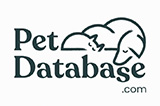Responsible Dog Ownership
Doglost.co.uk gives a four-pawed salute to owners who follow the important rules of responsible dog ownership.
The following information has been published to help everyone be a better dog owner.
Whether you are enjoying your first weeks with a new puppy or have a pack that would make the Dog Whisperer proud, these simple rules should ensure you and your canine friend get the best out of your relationship.
Identification
- The law states a dog must wear a collar and tag, which details the name and address of the owner, when it is in a public place. DogLost recommends the tag remains on at all times – we all know what escape artists canines can be, jumping fences or slipping through open doors when you least expect it.
- Microchipping or tattooing – or both – cannot be recommended highly enough as permanent means of identification for all dogs. It is a must, must, must! Dogs can be stolen from a garden in London, taken to Wiltshire and dumped on the street for the warden to collect within days – how will the pound know their newest arrival has an owner desperately looking for it if there is no chip or tattoo? The assumption remains that a dog will go missing and end up in the pound closest to its home. This is no longer the case as the system struggles to deal with the overwhelming number of dogs surrendered and abandoned. They are moved all over the country, depending on space, so you HAVE to get your dog chipped to ensure they can be traced to you. It goes without saying that you must ensure contact details are kept up to date.
- Stray dogs are no longer dealt with by the police. They no longer have a duty to accept or deal with stray dogs. The issue is now managed by local authorities and you must contact them if you find a dog. Most dogs that go missing are reunited via their chips.
The Law And You (And Your Dog)
- Owners, or those caring for a dog, have legal duties, laid out under the Animal Welfare Act of 2006. These include:
- A suitable environment to live in
- A suitable diet (including water)
- The ability to exhibit normal behaviour patterns
- Protection from pain, suffering, injury or disease
- Is housed with, or apart from, other animals depending on its needs
- Under the Dangerous Dogs Act of 1991, it is a criminal offence for a dog to be "dangerously out of control" in a public place, or a private place where it is not permitted to be. This applies to ALL dogs, of ALL breeds. A dog shall be regarded as being dangerously out of control if there is reasonable cause to believe it could injure a person (whether or not it actually does so). If it does cause injury to a person, the offence is aggravated and, therefore, more serious.An injury does not mean just a bite. It could jump up and cause a scratch or a bruise or could injure someone by knocking them.
- Under the Animals Act of 1971, you could be held liable to pay compensation for any damage caused by your dog. Liability rests with the keeper – the person in possession/control of the dog at the time of the incident.
- Under the Clean Neighbourhoods Act of 2005 your local authority can/has introduced Dog Control Orders that relate to control of canines in terms of dog fouling, being kept on a lead in certain areas, the number of dogs a person can take onto certain land and so on. Ensure you check the law and, please clean up after your dog when it fouls.
- Under the Dogs Act of 1871, a complaint can be made to a magistrate that a dog is dangerous and not under proper control. If it appears to the court that the dog is, indeed, dangerous, it can issue an order to the owner to keep it under control or it can order the destruction of the dog. This law applies to the behaviour of a dog on private and public land.
- The Dogs (Protection of Livestock) Act 1953 makes it a criminal offence for a dog to be at large – ie not in control or not on a lead – in a field or enclosure that contains sheep. Worrying livestock also includes attacking or chasing livestock in a manner likely to cause injury or suffering. Livestock includes cattle, sheep, goats, swine, horses and poultry such as domestic fouls, chickens, geese or ducks. Injury does not have to be caused in order for an offence to have occurred.
- Councils have numerous legal powers that enable them to take enforcement action against owners whose dogs cause a nuisance, such as excessive barking. It is worth remembering that it is just as important to clear your garden of dog mess as it is to scoop the poop when you are out in public. Dog mess left to build up in a garden can cause a nuisance to neighours and Environmental Health can (and will) take action.
- Keep your dog safe and secure. Ensure it cannot escape from the garden and do not allow it to roam the streets unsupervised. Never leave children and dogs together unsupervised and when you are out walking your dog, remember not all people feel comfortable at having a slobbery, muddy canine charging towards them – you and the dog may know it just wants to say “hello” but others don’t!
Health, Wellbeing And Welfare
- Dogs die in hot cars and that is a FACT. Never leave a dog in a car on a hot day, even when it seems cloudy or overcast. Aside from the fact thieves can force a door and steal your canine friend in a matter of seconds, leaving dogs in cars can – and has – killed them. They suffer in agony before dying in a matter of minutes.
- One-on-one pooch pampering is appreciated. Consider the needs of your dog based on its coat type and breed and begin grooming when it is a puppy to ensure it is fun, not a chore! Pay attention to paws, claws and pads, teeth and gums, eyes and ears. Seek veterinary advice if you are concerned.
- Consider the doggie dietary needs at differing stages of its life and ensure it always has access to clean drinking water and a space to call its own when it needs some R and R.
- Vaccinations will help protect your dog and prevent the spread of diseases, some of which can kill your pet. Vaccinations are administered via one or two shots and are then subject to an annual booster.
- Remember to regularly deworm your dog when it is an adult and keep an eye out for fleas and ticks – just as pesky to humans as to canines!
- Neutering dogs can have health and behavioural benefits and are straightforward procedures. As well as making dogs less attractive to thieves, neutering is one of the ways we can tackle the population crisis that is leading to ever-increasing numbers of dogs being abandoned. Rescue centres are overwhelmed and struggling to accommodate the hundreds of dogs they are being asked to care for. This has lead to the inevitable increase in the number of healthy dogs being put to sleep, simply because there is no room for them.
- There are a wide range of insurance options available for dogs and owners are advised to seek advice and select the one that suits them best.
- Training can be huge fun for all the family and does a world of good for dogs. Ensure your dog has the basic manners and seek advice for problems.



